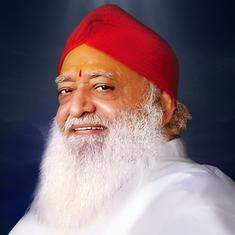Judiciary should focus on constitutional, not societal morality, says Justice Ranjan Gogoi
The Supreme Court judge delivered the third Ramnath Goenka memorial lecture in New Delhi on Thursday.

Supreme Court Justice Ranjan Gogoi on Thursday said justice is not a standalone idea but an amalgam of democracy, equality, liberty and other ideals. He made the comment while delivering the third Ramnath Goenka memorial lecture organised by The Indian Express at the Nehru Auditorium in New Delhi’s Teen Murti Bhavan.
Gogoi said the Supreme Court’s verdict in 2015 striking down Section 66A of the Information Technology Act, for the restrictions it imposed on online speech, was inspired by other rulings that protected Indians’ right to freedom of speech. “In this ruling the vision of justice was attained in the courtroom,” the judge said. “But I ask if it has translated into reality and reached the ground?”
Gogoi also referred to a 1986 judgement of the Supreme Court. The court, which had to decide if compelling a person to sing the national anthem despite genuine conscientious religious objection violates fundamental rights, ruled that “the real test of democracy is the ability of an insignificant minority to find its existence in the country”. The judgement said constitutional morality should be the guiding light, and not societal morality, Gogoi observed.
The judge, who began his speech saying he did not know when was the last time the judiciary was so much in the news, quoted from an article published by the The Indian Express on “independent judges and noisy journalists” being a democracy’s “first line of defence”. However, he added that sometimes countries need “independent journalists and noisy judges”.
Justice Gogoi referring to National Annthem case wherein court observed "the real test of democracy is the ability of an insignificant minority to find its existence in the country. Our tradition, philisophy, Constitution preaches tolerance, let us not dilute it". #RNGLecture
— Bar & Bench (@barandbench) July 12, 2018
He said the mechanism to dispense justice should be more enforcement-oriented and asked the judiciary to be more proactive. “I will even say that the institution, at all levels, needs to become more dynamic in the matters of interpretation of laws,” he said.
Gogoi said the the judiciary today is “not a poor workman who blames his tools but it is a workman with no tools” and said there is is a pressing need to explore the endless limits of the legal services mechanism. “Legal awareness and legal empowerment of the marginalised in this vastly unequal society of ours, have to be a made an observable reality,” he added.









